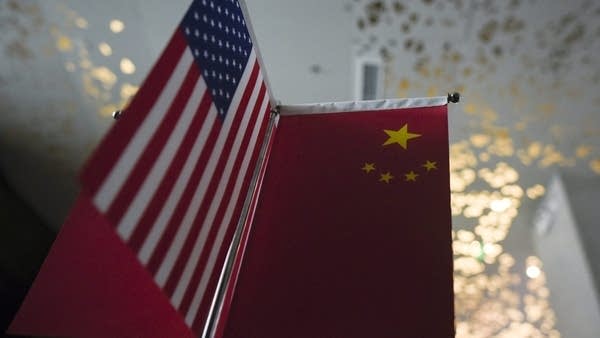U.S. startups should be wary of knowledge theft disguised as investment

Foreign governments are increasingly using venture capital investment to spy on U.S. companies and pilfer their intellectual property, or IP. That’s according to the National Counterintelligence and Security Center, an agency of the federal government. Private investment from overseas is vital to sustaining U.S. startups and innovation, but it’s also a method used by other countries — primarily China, but also Russia, for example — to harm the U.S. economy and compromise national security.
Michael Casey, director of the National Counterintelligence and Security Center, discussed the problem with “Marketplace Morning Report” host Sabri Ben-Achour. The following is an edited transcript of their conversation.
Sabri Ben-Achour: Do you want to walk us through how this kind of espionage works?
Michael Casey: Sure. Classic example is, you’re a startup, you’re desperate for money, you’re looking to expand. An investor shows up and says, “Hey, I’m thinking about investing a bunch of money. Can I see your intellectual property to make sure I’m making a smart investment?” The next thing you know, they’ve taken it and disappeared. There are a couple different ways this has happened, but that’s sort of the archetypical example. And then your investor goes and sets up his own business in competition with you in some foreign country.
Ben-Achour: This threat has been around for a while, this kind of practice. But the NCSC issued an updated warning to the startup community this summer. What prompted that?
Casey: Well, we continue to see growth in this area. Our adversaries have shifted tactics over time. As you point out, this is not new. They’ve actually been doing this for a little while. But we see them doing it more and more. And also moving to mask some of their investments. It’s no longer just direct from the adversary country or through a person who’s obviously associated with the adversary country. But we see it through third countries or masking themselves as even U.S. businesses.
Ben-Achour: Can you give us some examples of what this looks like and some companies that have experienced this?
Casey: Sure. There’s a classic example, a company called Smith’s Harlow, which is a British engineering company, I believe. And they had a foreign investor show up who was looking to buy the company for, I think, $10 million. And they actually put a down payment down of $3 million or $4 million, at which point Smith’s Harlow showed them all their IP.
The investor then backed out of the deal, Smith’s Harlow lost its British military contracts — because they had this foreign investor — and now they have also lost their IP. And they’re in the process of going bankrupt. I think that’s a pretty classic example of how this works.
Ben-Achour: And I guess we should say, showing an investor some amount of IP is kind of a normal thing in the startup world to some extent, right? It’s just you don’t expect them to run off with it.
Casey: Of course. I mean, I think what we would say is, Note 1: Know who you’re talking to. Do some due diligence into those people who show up and are offering to invest in your company. And then, 2: Think about what kind of risks you’re taking when you’re deciding how much IP to show. This isn’t a “Don’t take risks.” This is a “Please take smart risks” warning.
Ben-Achour: On the other hand, these investments are structured to avoid a certain amount of scrutiny. They could be coming from intermediaries in entirely different parts of the world. How is a startup supposed to see that coming? To sort of sift through, you know, the legitimate investors from the suspect ones?
Casey: Admittedly, this is a difficult subject. I think if your investor shows up and seems to have complex ownership where it looks like it’s an investment through an intermediary — where a company when you Google them and they seem to have redomiciled in the United States, having just been in Hong Kong a year ago — these are all sort of trigger warnings. I think that a lot of these companies, though, have either venture capital firms associated with them or private equity firms who have also invested. And my guess is those guys don’t want to see their investment disappear either and would be somewhat helpful in this regard.
Ben-Achour: Do you think people have an understanding of the scale of the industrial espionage, particularly coming from China?
Casey: I think they’re starting to. I think when we and others started warning about this — whatever it was, five, seven years ago — the reaction was typically something like, “Oh really, is that happening?” And now it’s much more of a, “Tell me how it’s happening, and tell me how to protect myself.”










